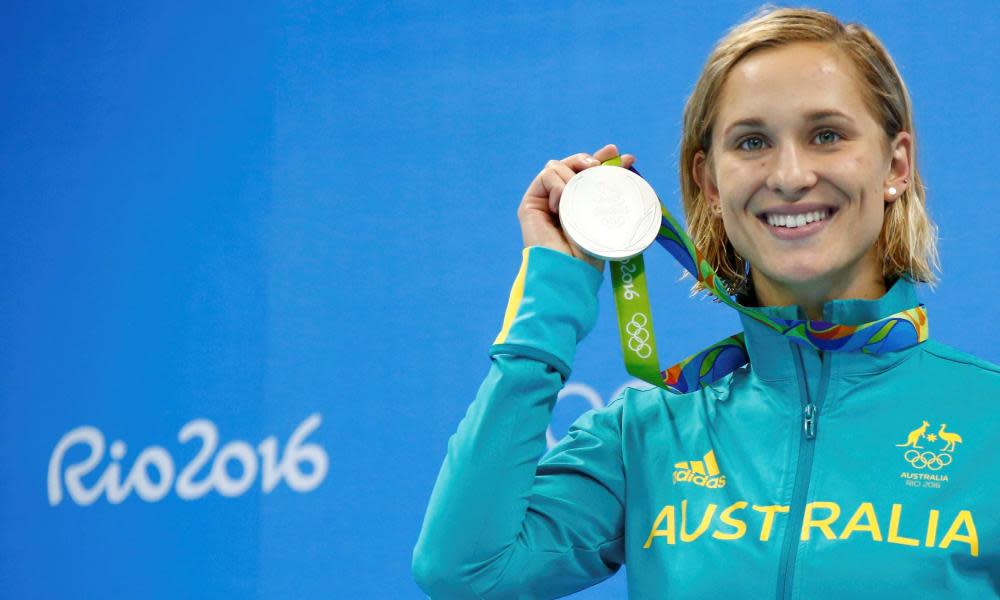Swimming Australia report calls for skinfold test ban and female coach quota

An internal review into Swimming Australia’s treatment of girls and women has recommended the organisation drop skinfold tests and the term “physique”, and to adopt a quota for female coaches.
The report lists 46 recommendations, including urging SA to issue a statement acknowledging “the practice of assessing body composition is harmful to swimmers” and to rethink its approach to coaching.
Related: Swimming Australia defends its response to Maddie Groves abuse allegations
One recommendation said SA should “challenge the misinformed view that lean body mass predicts performance” and that it should develop “training in using humanising and non-objectifying language in managing body image concerns.”
“The term ‘physique’ has meaning and consequences, including overvaluing body shape and size in terms of their impact on performance,” the report reads.
The report goes on to recommend banning “unjustified routine periodic screening”, saying body composition assessments should only be conducted twice a year unless there is a “justified need”.
It says SA should “demonstrate clear leadership” by banning “the use of surface anthropometry, specifically skin folds, as a measure of body composition at any stage of a swimmer’s career”.
It recommends SA integrate training on how “to be an ally”, to “increase the capacity of all coaching staff, but especially the male coaches, to understand the impacts of bullying and exclusion of female coaches and enhance opportunities for creating meaningful change for gender equity.”
The report also addresses SA’s complaints process, recommending it adopts a “character test” for selecting coaches and support staff for teams, which will consider active and previous complaint information, and urging SA to adopt a quota for “female representation among advanced and performance coaches”.
It also references World Rugby and AFLW as models for female inclusion among coaching staff.
“Swimming Australia [should] show cultural leadership by prioritising behavioural standards over a coach’s performance standards. The athletes’ welfare must be the primary driver for coach selection.”
It says SA should commit to “never again selecting an all-male team for national and international competitions and ensures that a minimum number of women coaches are included – no less than two women when four or more coaches are selected and at least one woman where there are three or less coaches selected”.
The report was commissioned in June 2021, after a series of accusations of sexual abuse and misconduct rocked the organisation.
Swimmer Madeline Groves, a silver medalist at the Rio Olympics, withdrew from the Tokyo Olympic trials as a “lesson to misogynistic perverts and their bootlickers”.
“You can no longer exploit young women and girls, body shame or medically gaslight them and then expect them to represent you so you can earn your annual bonus. Time’s UP,” she tweeted.
Groves has since alleged she was sexually abused from the age of 13 by someone still working in the sport.
It also came after gold medallist Cate Campbell said female swimmers have been subjected to body shaming, in a book she wrote with her sister Bronte.
She said the attitude of many male coaches was that “the skinnier the better,” with girls given smaller plates so they would eat less and many criticised in front of other swimmers if they gained any weight.
Related: Skinfold tests: a problematic ordeal or legitimate method of gauging elite fitness? | Emma Kemp
Swimming Australia president, Kieren Perkins, said in a statement that the SA board “acknowledges” their responsibility in making changes.
“The Swimming Australia board acknowledges the ultimate collective responsibility and commitment in addressing these recommendations rests with the board and the executive team in delivering and committing to meaningful and enduring change, being transparent and regaining and earning the trust of our athletes and our entire community.”
In the same statement, SA said it welcomed the report, reflecting on the fact that 60% of their participant base was female.
“The feedback was open and frank and there were experiences recounted that were difficult to read,” it said. “Broadly, the review found that Swimming Australia must address the coaching gender imbalance, coaching culture, education and accreditation, governance structures, and the complaints process.”
The panel also recommends SA release the report in full, which it has rejected, citing privacy concerns.
“While we cannot release the full report due to the confidentiality guaranteed to participants, the themes of the report are clear in the recommendations and provide public accountability for our steps forward.”

 Yahoo Movies
Yahoo Movies 
